Remembering Shinzo Abe: Tragic death of an Asian statesman

From the moment he appeared on the world stage, Shinzo Abe, Japan's most compelling politician in a generation – perhaps even in the entire post-war era – was cut from a different cloth. Whereas the norm for Japanese leaders during this period has been being the efficient, managerial type, who could be relied upon to not rock the boat, Abe, who was assassinated at a political event on July 8, broke the mould by defining himself in terms of the political vision he espoused with such clarity and purpose.
His distinctive lineage was steeped in politics: maternal grandfather Nobusuke Kishi was part of Japan's war cabinet during World War II (while paternal grandfather Kan Abe sat in the opposition benches in the National Diet, campaigning to end the war), and was later prime minister as well under the new, pacifist constitution that Japan adopted in the aftermath of the war. His father Shintaro was a leading figure in the Liberal Democratic Party's politics in the 80s, and served a four-year stint as Japan's foreign minister with distinction.
Vital to Abe's vision was a restoration of Japan to its rightful place at the top table, within the international family of nations. Having relinquished the premiership due to ill health after just a year in office once before, this urge was even more evident when he fashioned an improbable comeback to become the prime minister again in 2012. Shortly afterwards, he gave an address at the Center for Strategic and International Studies in Washington, DC, in which he explained his economic and diplomatic objectives and declared that he had returned to the prime-ministership to prevent Japan becoming a "Tier Two Nation." By the time he was forced to resign once again, due to a recurrence of the same ailment in 2020, no one had led Japan for longer as prime minister.

His desire to see Japan expand its sphere of influence was amply reflected in the unusually busy international schedule he adopted. From December 2012 to September 2014, Abe visited an astonishing 49 countries, including Bangladesh. Keen to unshackle his country from the constraints of its post-war constitution, Abe positioned Japan as a key player in regional security vis-à-vis the Asia Pacific. Perhaps his most audacious foreign policy coup d'état lay in securing Washington's buy-in for the constitutional changes he had in mind, to expand the scope of Japan Self-Defense Forces (it did away with a standing army in the aftermath of World War II) to act in cooperation with and in defence of allies.
Abe's foreign policy moved Japan away from its traditional focus on the "big three" bilateral relationships with the United States, China, and South Korea, and sought to increase the country's international engagements by expanding ties with Nato, the European Union, and others beyond the Asia Pacific region. Bangladesh was one of the countries that benefited from his endeavours, and he held frequent summits with Prime Minister Sheikh Hasina, in the process elevating the bilateral relationship between the two countries to a new comprehensive partnership.
In another sign of the greater priority accorded to Bangladesh under Abe, Prime Minister Hasina was invited to attend the 2016 G7 Summit, which Japan hosted that year, as part of the outreach segment. Invitations to the outreach segment are very much the hosts' prerogative, and it was the first time Bangladesh had been invited to attend the annual meeting of rich, industrialised economies.
Notwithstanding his nationalist credentials, the fact remains that his death has occasioned an outpouring of grief from many corners of the globe, and has been officially mourned at the state level by at least two countries in Asia, including Bangladesh. In death, his reputation will likely be further enhanced.
Enayetullah Khan is the editor-in-chief of UNB and Dhaka Courier.

 For all latest news, follow The Daily Star's Google News channel.
For all latest news, follow The Daily Star's Google News channel. 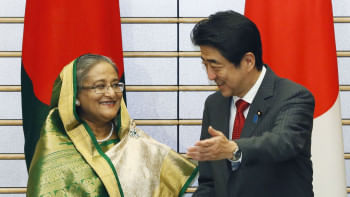
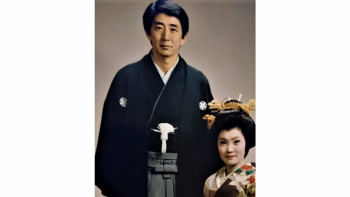


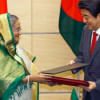
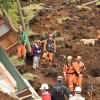
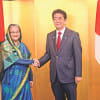




Comments